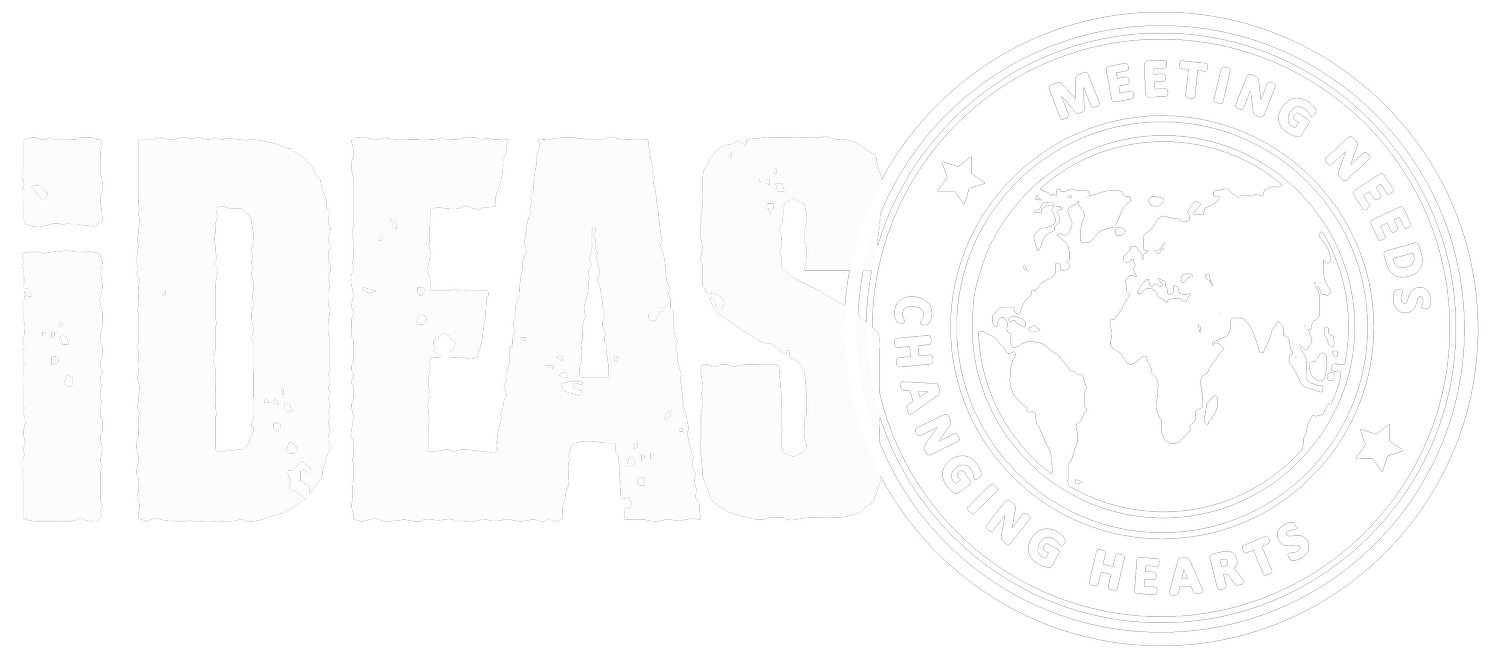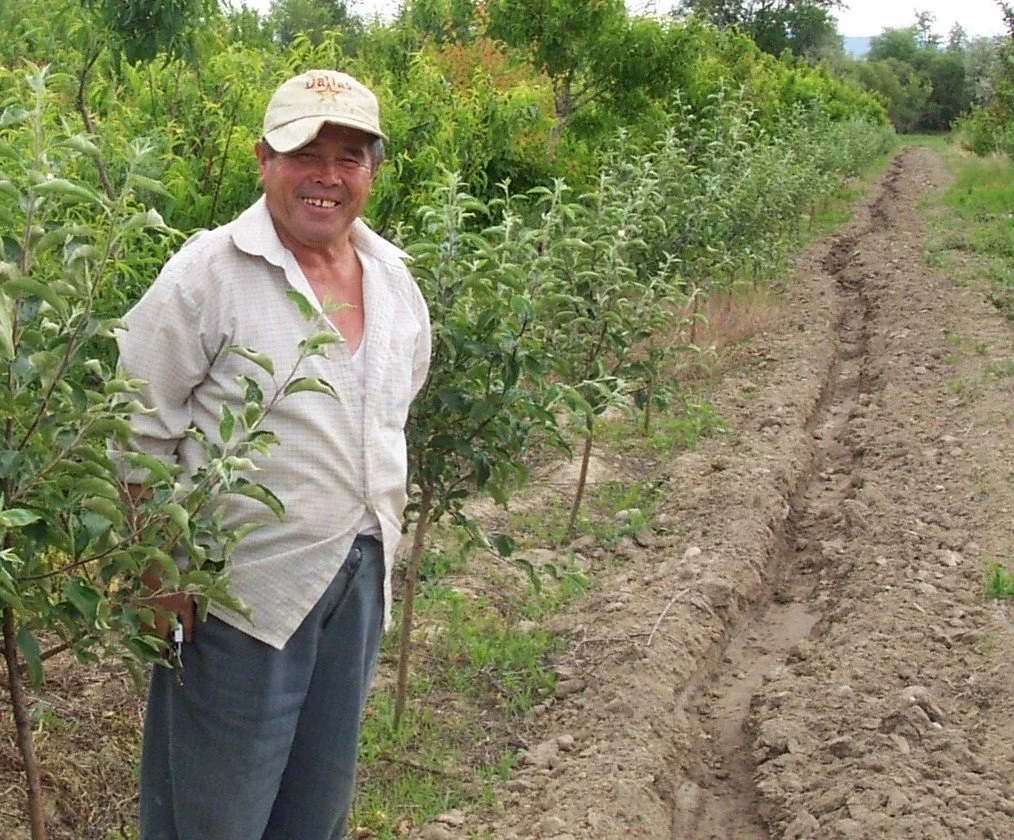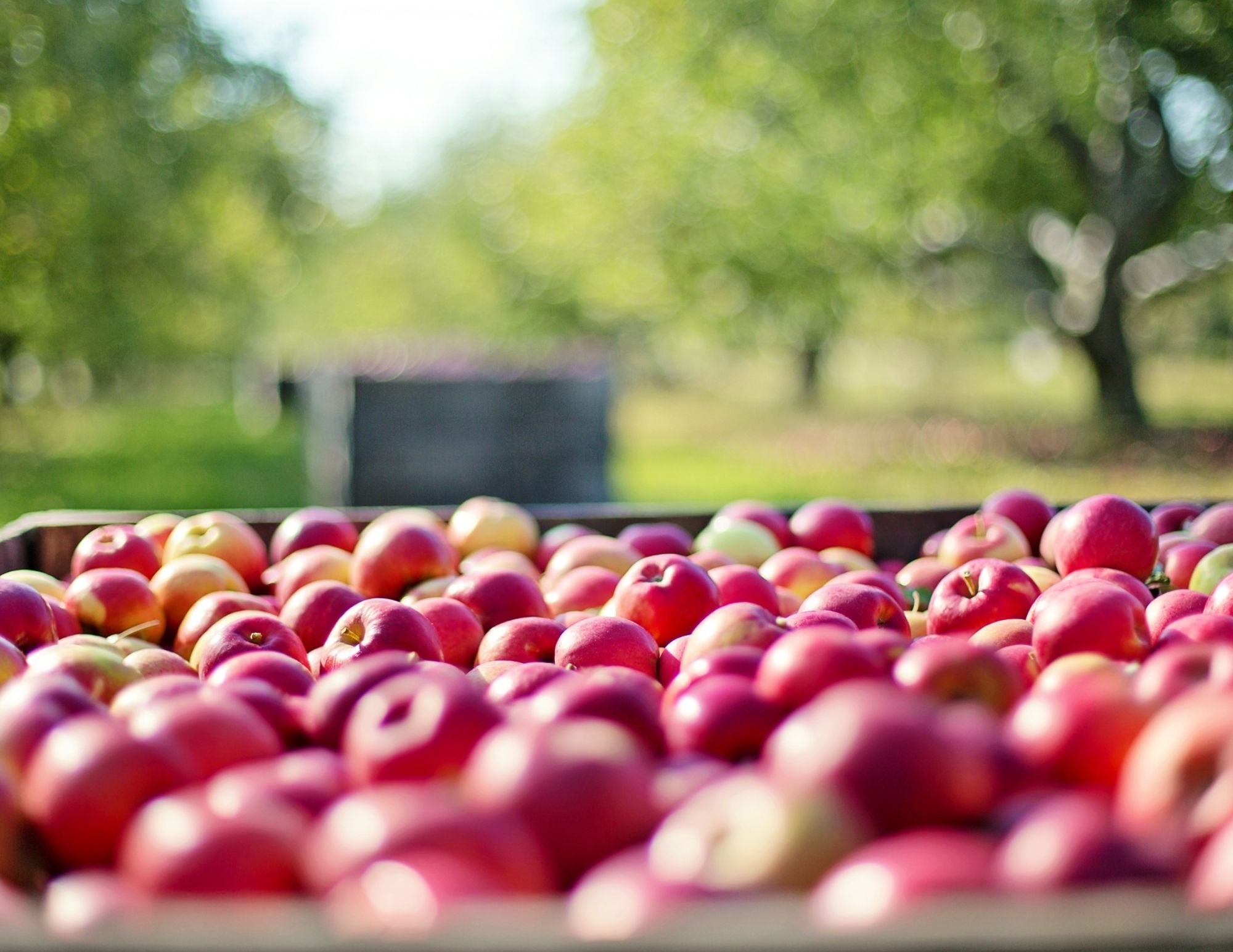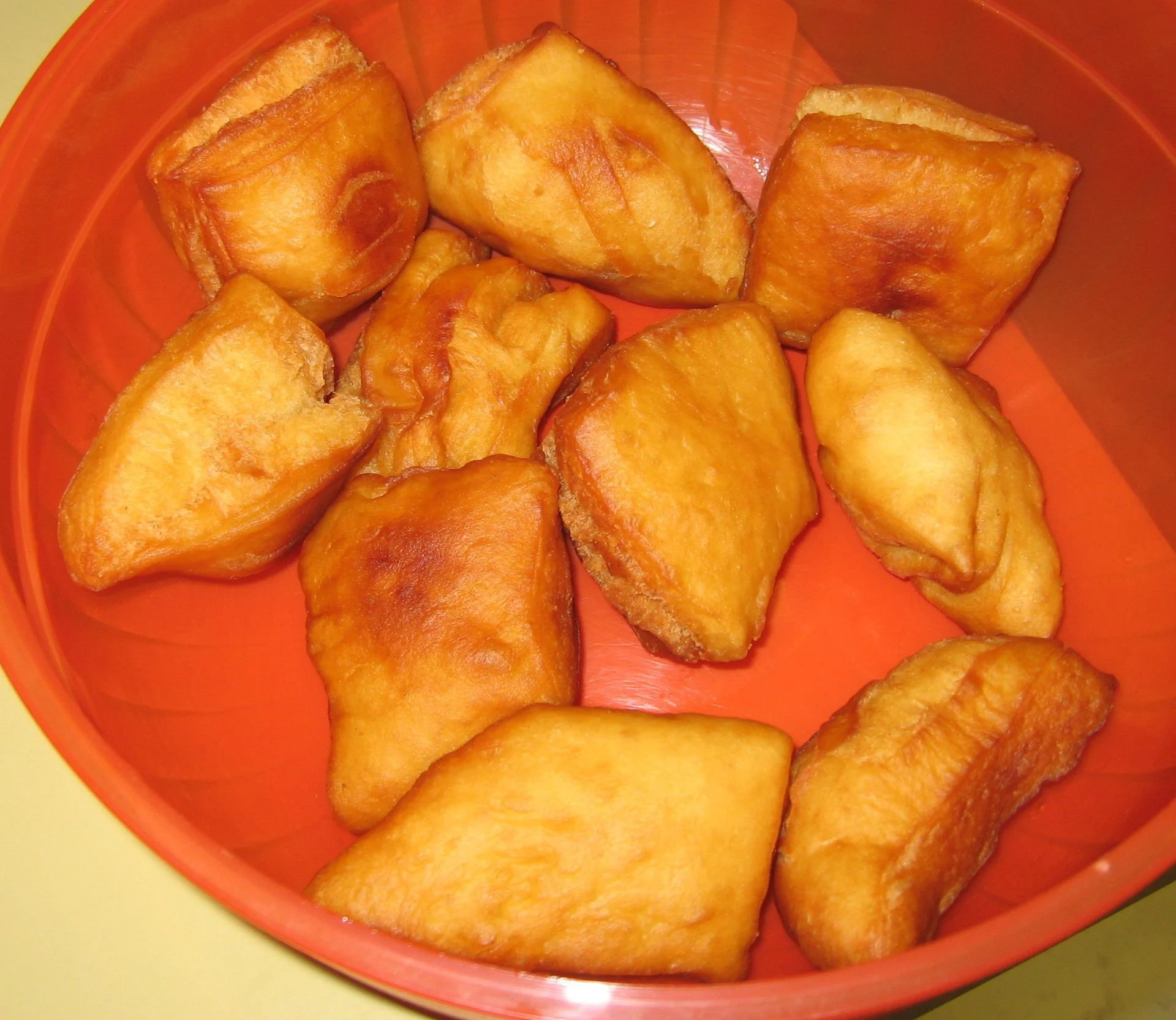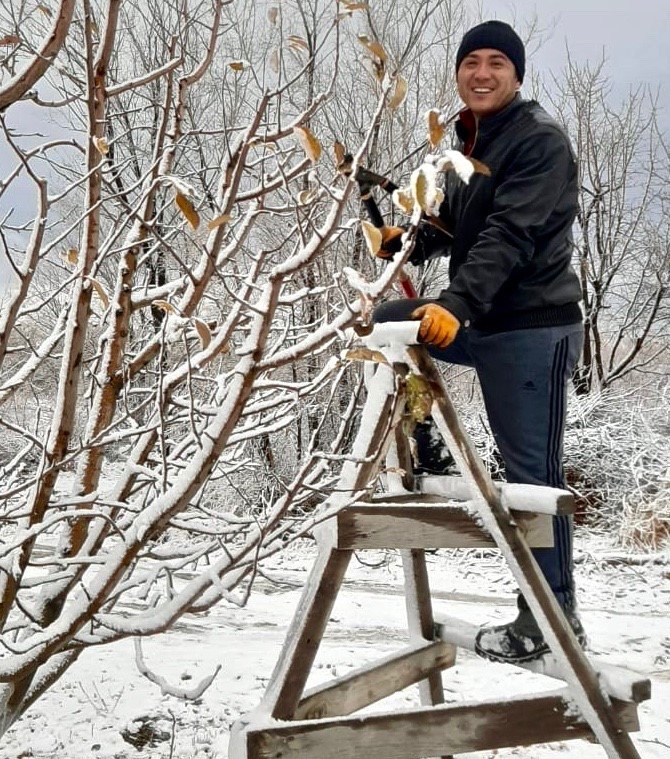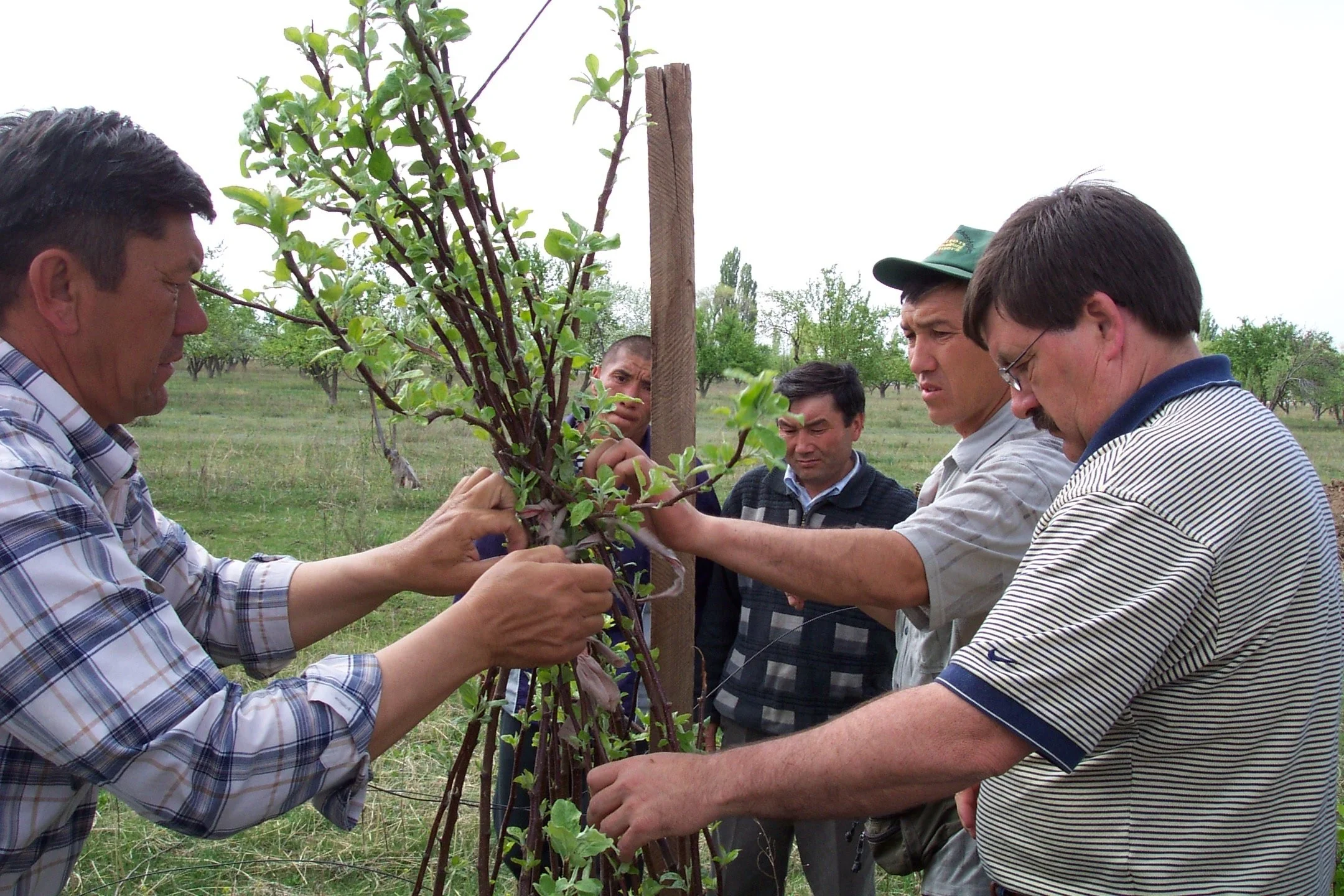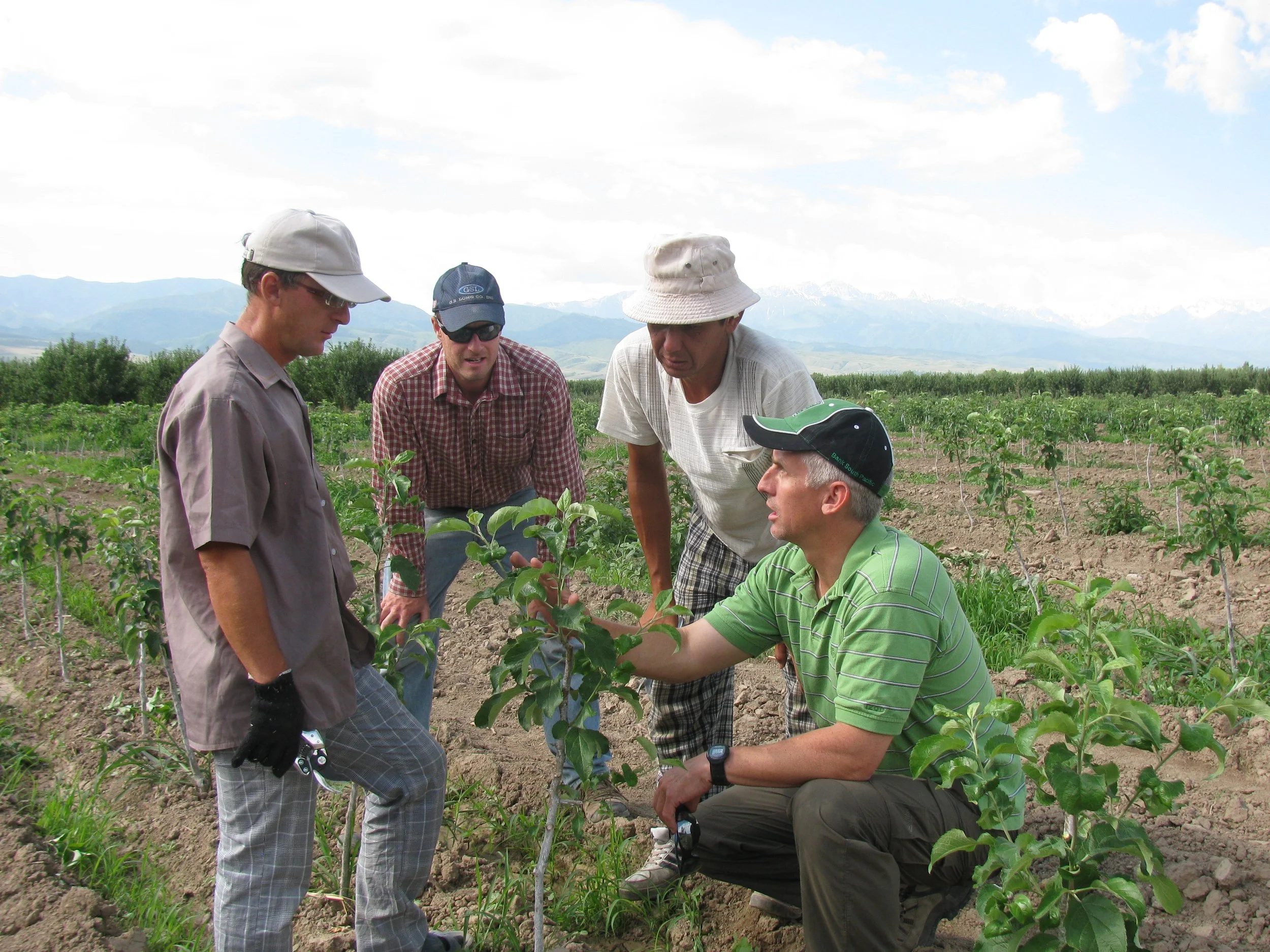INVESTING IN LOCAL COMMUNITIES IN CENTRAL ASIA
KAZAKHSTAN
For over 25 years, IDEAS has trained orchard farmers, helping them to produce higher quality fruit. Our Light on a Hill education program provides English training. Sports programs offer opportunities for organized activities, including cycling.
20 years of partnership in Kazahkstan
JEWEL OF CENTRAL ASIA
Kazakhstan is a landlocked country mostly in Central Asia, with a small part in Europe. It borders Russia to the north and west, China to the east, Kyrgyzstan to the southeast, Uzbekistan to the south, and Turkmenistan to the southwest, with a coastline along the Caspian Sea.
Kayirli tang!
Good morning!
Speaking the local language
Kazakhstan is a multiethnic country where the indigenous ethnic group, the Kazakhs, comprise the majority of the population. The official languages of Kazakhstan are Kazakh and Russian. Both Kazakh and Russian are used on equal grounds.
Granny Smiths got their start in Kazahkstan
The birthplace of apples
Apples are not native to North America. The genetic material for apple varieties like Granny Smith, Fuji, and most modern apples came from Kazakhstan as apple seeds were carried along the Silk Road to the rest of the world.
For over 20 years, IDEAS has trained orchard farmers, helping them to produce higher quality fruit.
Try Baursak, a tasty fried dough treat
Sample a local delicacy
Made in either balls or triangles, baursak is a fried yeast dough treat enjoyed in parts of Kazahkstan. Can be served after a meal or as an appetizer. Most often at weddings, celebrations and memorials.
FINDING SOLUTIONS
IN KAZAKHSTAN
At IDEAS we work with local communities and partners to identify specific barriers to dignity that arise out of the cultural context. Together, we implement expert, programmatic solutions that result in appropriate and meaningful impact that serves the community as a whole.
CHALLENGES + OPPORTUNITIES
Transitioning from a central economy
Developing profitable business model post-Soviet Union
Although Kazakhstan gained its independence from the Soviet Union over 30 years ago (1991), the impact of a centrally planned economy where private enterprise was not allowed is still seen till this day. Farmers have had to learn how to make their own plans for their own family business. Previously farmers worked for the large government state farm and did not have to concern themselves with how to make a profit.
Knowledge is power
Many farmers unwilling to share new techniques they’ve learned
We have seen a mindset of where people view knowledge as power and therefore people are reluctant to share what they have learned with others. It is challenging to work with the right farmers who are willing to teach others.
Decentralize training for farmers
Bringing expertise + training directly to the farmer + orchard
Rather than doing a high-tech, expensive demo at our farm center, we aim to demonstrate new farming techniques in farmers’ orchards. That way other farmers can see it as possible, rather than just something that only outside experts can do.
Neighbor helping neighbor
Farmers share best practices with neighbors to improve crop quality
Farmers are realizing that it is in their best interest to teach their neighbors good farming practices, especially when it comes to pest and disease control. If your neighbor doesn’t know how to control pests and diseases, then they will easily be spread into your orchard and affect your crop quality.
Help support our work in Kazahkstan.
IDEAS works in community development in Kazakhstan through education, agriculture, and health and wellness. We provide programs that respect local communities, meet needs, and encourage people to pursue values like love, respect, mercy, acceptance, and forgiveness.
Support IDEAS Work in Kazahkstan
Providing English skills for better job opportunities
Light on a Hill expands job skills through English training.
Light on a Hill seeks to improve the skills of English-speaking teachers, which in turn improves the language abilities of their students, preparing them for jobs in the future. We do this through English practice online with locals through a “virtual pen pal” relationship, English clubs and camps, English practice with local students, advising, mentoring, coaching, and teaching owners of local English teaching businesses.
In one year
25
teachers were taught
English-speaking and life skills
Improving crop yields + increasing knowledge for local growers
Central Asia Harvest Program helps fruit farmers grow more.
Central Asia Harvest Project works to increase orchard quality and yields, offering life-giving hope and improving quality of life for farmers and their families. This is accomplished through an interactive agricultural training program that has now evolved into an extensive network of fruit farmers and trained local consultants.
In one year
200
200 fruit farmers trained in orchard management, including pruning and pest disease management
Expanding the quality of life for Central Asians through physical activity
Nur-Hayat Sports brings health + wellness to rural communities.
Nur-Hayat Sports exists to improve health and wellness for rural farming families of Central Asia. We do this through sports camps, running events, a weight-lifting gym, annual bike tours, and educational sports videos.
In one year
24
adults trained in sports activities and camping
JOIN OUR WORK IN KAZAKHSTAN
We’d love to have you join our family!
IDEAS is looking for qualified professionals ready to serve. Our application process introduces you to IDEAS values and methodologies, matches your skills to IDEAS programs, and carefully walks you through steps to discover if you and IDEAS are a good fit.
APPLY
Complete application.
Initial conversation. Assessments.
Interview with leadership.
PREPARE
Create job description.
Develop budget.
Cross-cultural training begins.
JOIN YOUR TEAM
Book your plane ticket. Join your team.
On-site orientation.
Let’s go!!

See our locations
-
IDEAS works in multisector programs alongside local communities. Explore Jordan!
-
IIDEAS works in multisector programs alongside local communities. Explore North Africa!
-
IDEAS works near Almaty in multisector programs alongside local communities. Explore Kazakhstan!
-
IDEAS works in multisector programs alongside local communities. Explore Guatemala!
-
IDEAS works near Córdoba in multisector programs alongside local communities. Explore Argentina!
At 12,340 feet, Agua Volcano dominates the skyline of Antiqua, Guatemala. Despite its lack of eruptive activity, the volcano can still produce debris flows that inundate nearby populated areas.
Helping individuals & communities flourish
Our Impact
21,780
Adults + children in Asia with no access to healthcare were treated in local clinics
1000+
Wheelchairs provided in Africa + Latin America, providing mobility for people & their families
1500+
Farmers & their communities in Central Asia received agricultural training
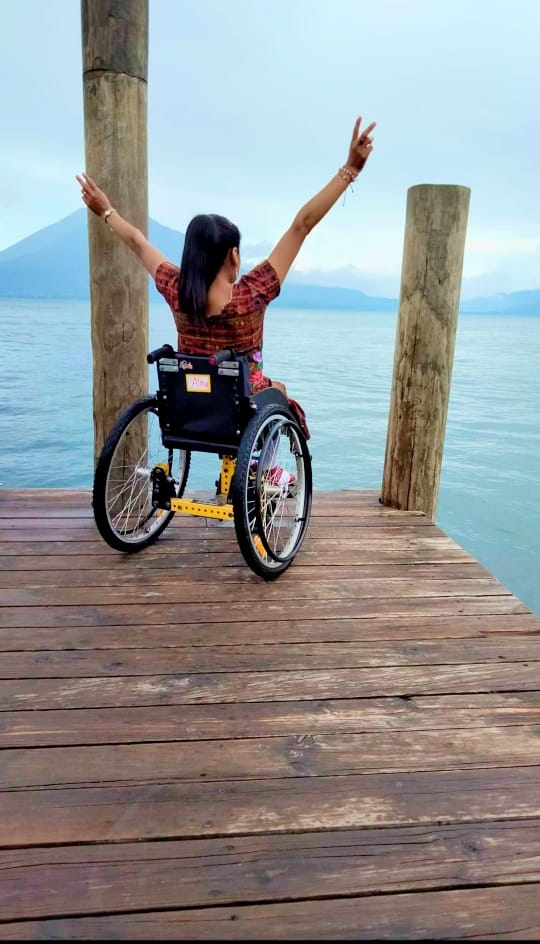
Celebrating removing barriers to dignity
Stories of Transformation
Alma was born in Guatemala with a disability called spina bifida. Unable to walk, she spent the first 14 years of her life isolated, locked in a room, confined to a bed or the floor. Her mother said she was a mistake. Her father said she was not his daughter. Alma wanted to go to school and have friends, but her disability made that impossible.
